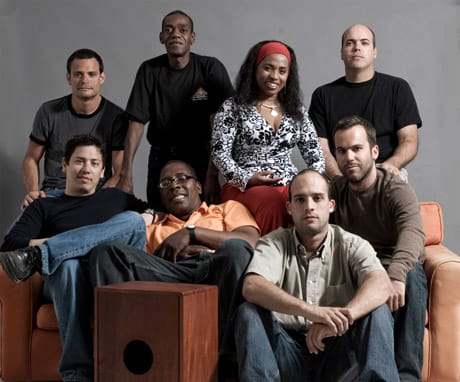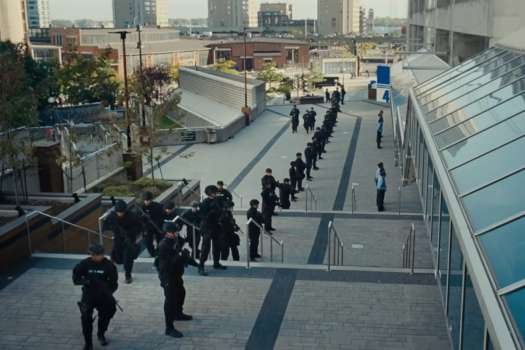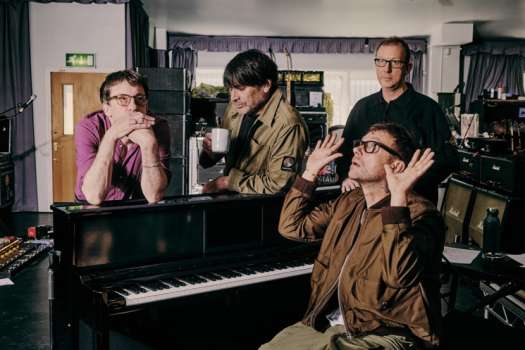The Spanish title translates to an exhortation of musical encouragement, and that feeling is shot through Novalima's outstanding third disc. I feared their move to Putumayo subsidiary Cumbancha would dull their more unusual rhythms and play up their loungier elements, but such worries were unfounded. Every track on this disc displays intense polyrhythmic interplay without ever losing its accessible charm, even when they explore more edgy sounds and harmonies. Their Afro-Peruvian core isn't smoothed out in the slightest; their method of affixing dance floor sounds to knotty syncopations has only gotten better. No generic break beats here — the folk is the funk. "Africa Lando" bears this out — the dead slow beat threatens to fall apart but hangs together with a restrained arrangement. While doughy analogue synths and Fender Rhodes sounds remain part of their repertoire, they are well matched with even heavier dub tactics than their previous albums. Little deviations from Peru, like "Ruperta/Puede Ser" with Cuban rappers Obsesion, or Mark De Clive Lowe's freaky keyboard solo in "Yo Voy," are absolutely successful. Novalima remain highly melodic and sonically inviting, a refreshing counterpoint to legions of scowling global booty beats. Hopefully this will have the staying power to make year end lists in 2009!
Have you ever felt any pressure to simplify your programming and put a more traditional break beat/backbeat in your songs?
Grimaldo Del Solar: One of the things we love about Afro Peruvian music is its complex but very groovy rhythm patterns. We wanted the electronic beats to build up organically over the Afro-Peruvian rhythms and not the other way around. This assures that we wouldn't lose the Afro-Peruvian groove. We had some problems when wanting to do some four-on-the-floor dance tracks over a typical "festejo" triplet beat 'cause we had to make the tempo slower to make it fit. Trying to solve these problems made us really understand how these rhythms work.
Inasmuch as this project is about Afro-Peruvian culture, to what extent does your international club experience shape this?
We think that our years living abroad and travelling gave us great exposure to all the things being done out there. When we started Novalima back in 2001, we were living in different places of the world (Barcelona, London, Hong Kong), so we were doing music for the world and not for Peru only. We think that if we didn't have that exposure to music and cultures from around the world it would be really hard to make music with a vanguard sound for modern crowds.
(Cumbancha)Have you ever felt any pressure to simplify your programming and put a more traditional break beat/backbeat in your songs?
Grimaldo Del Solar: One of the things we love about Afro Peruvian music is its complex but very groovy rhythm patterns. We wanted the electronic beats to build up organically over the Afro-Peruvian rhythms and not the other way around. This assures that we wouldn't lose the Afro-Peruvian groove. We had some problems when wanting to do some four-on-the-floor dance tracks over a typical "festejo" triplet beat 'cause we had to make the tempo slower to make it fit. Trying to solve these problems made us really understand how these rhythms work.
Inasmuch as this project is about Afro-Peruvian culture, to what extent does your international club experience shape this?
We think that our years living abroad and travelling gave us great exposure to all the things being done out there. When we started Novalima back in 2001, we were living in different places of the world (Barcelona, London, Hong Kong), so we were doing music for the world and not for Peru only. We think that if we didn't have that exposure to music and cultures from around the world it would be really hard to make music with a vanguard sound for modern crowds.




